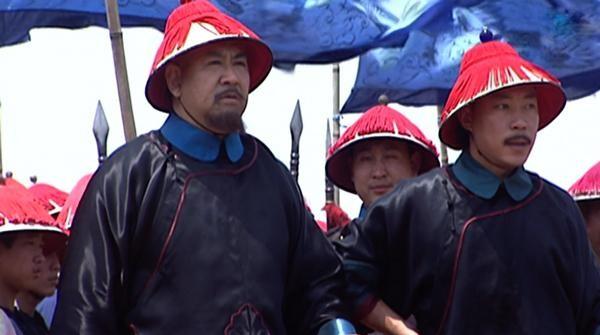Friends who have watched the TV series "Kangxi Dynasty" should be familiar with the character of Wang Fuchen. During the Kangxi Dynasty, he served as the viceroy of Shaanxi and sat in PingliangCheng, but he colluded with Wu Sangui and supported the army and respected himself. Later, the Kangxi Emperor sent a large army to conquest, and finally defeated it, and finally Wang Fuchen was forced to surrender. In history, although the Kangxi Emperor pardoned Wang Fuchen's sins, he still chose to commit suicide.
According to historical records, Wang Fuchen participated in the peasant uprising at the end of the Ming Dynasty, and he was highly skilled in martial arts and galloped horses, known as "horse harriers". Later, Wang Fuchen defected to the Ming Dynasty officials and troops, under the command of Jiang Ou, the commander-in-chief of Datong. Because Wang Fuchen was tall and powerful, and his martial arts were very good, some people called him "Living Lü Bu". Later, Wang Fuchen followed Jiang Ou to surrender to the Qing Dynasty, and after several turns, he was appreciated by the Shunzhi Emperor.

After that, Wang Fuchen followed Hong Chengyu and Wu Sangui to the southwest, made many military achievements, and was named the chief soldier. Wu Sangui was very kind to Wang Fuchen, "Pingxi's treatment of auxiliary ministers, there are additions to the sons and nephews, nian Wang Fuchen does not go to the mouth, there are excellent food and clothing utensils, others are not allowed, will be given to the auxiliary ministers." However, Wang Fuchen had a conflict with Wu Sangui's nephew, and eventually he chose to leave Yunnan and become the viceroy of Shaanxi, and was under the banner of Zhengbai of the Han Army.
When Wang Fuchen left Yunnan, Wu Sangui personally sent him off, crying and saying: "Er to Pingliang, don't forget the old man", and also gave 20,000 taels of silver. In the twelfth year of the Kangxi Dynasty, Wu Sangui rebelled in Yunnan and sent a letter to Wang Fuchen asking him to raise an army to respond. However, Wang Fuchen did not agree, but instead arrested Wu Sangui's emissaries and sent them to the Kangxi Emperor. However, at that time, the rebels were very strong, so the Kangxi Emperor sent Moluo through Shaanxi.
Mo luo was born in Manchuria and was one of the three ministers who advocated the withdrawal of the domain. After he came to Shaanxi, he reorganized his troops and horses, marched to Sichuan, and won successive victories in the Battle of Yangping Pass and the Battle of Chaotian Pass. However, there were serious contradictions within the Qing army in Shaanxi, mainly between Jingluo Moluo and The Viceroy Wang Fuchen. When the two worked together before, there was a gap, and this time it was even more contradictory.
In December of the thirteenth year of the Kangxi Dynasty, Wang Fuchen led the Green Battalion to attack the Jinglio camp, and in the course of the battle between the two sides, Mo Luo was shot in the throat by a shotgun and killed on the spot. After that, Wang Fuchen led an army to capture many cities and cities, officially participating in the San Francisco Rebellion. The Kangxi Emperor sent Tuhai to Shaanxi, and after a bloody battle, Kangxi finally succeeded in forcing Wang Fuchen to surrender in the fifteenth year. At that time, the Kangxi Emperor issued an edict to restore wang fuchen's official position, and also added the title of prince Taibao and was given the title of general of Jingkou.
However, Wang Fuchen's heart was very uneasy, after all, he participated in the rebellion, accepted Wu Sangui's official position and money, and killed Mo Luo, a favorite of the Kangxi Emperor. Later, after the end of the war on the shaanxi front, the Kangxi Emperor summoned Wang Fuchen to Beijing in the nineteenth year of Kangxi. Knowing that his future was uncertain, Wang Fuchen first expelled his wife from the house, and then summoned his subordinates to order the aftermath, and finally Wang Fuchen chose to commit suicide.
Wang Fuchen's way of committing suicide is very special, "the paper covers my face, the cold water puffs out of death, no different from the death of illness, and the female and other women use phlegm violent death as words." In this way, Wang Fuchen ended his life. It turned out that Wang Fuchen's choice was correct, and the Kangxi Emperor did indeed take revenge on those generals who participated in the rebellion. Wang Fuchen used his own death to avoid more subordinates and also to keep his own home.
References: 1. Draft History of the Qing Dynasty; 2. History of San Francisco; 3. Miscellaneous Records of Guangyang